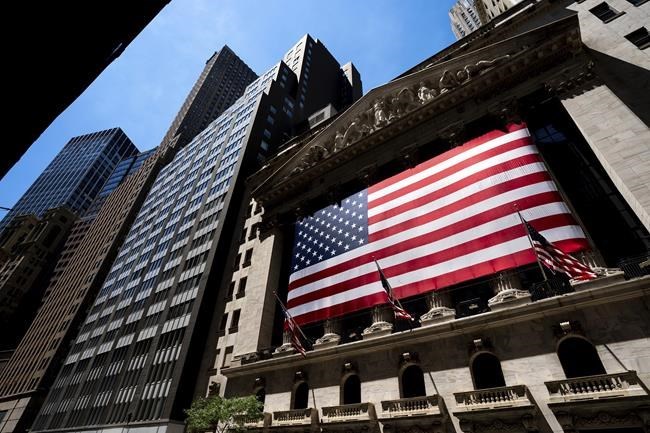NEW YORK ŌĆö Stocks fell broadly on Wall Street and Treasury yields rose after another hot reading on the job market raised worries that the Federal Reserve will need to continue inflicting pain on the economy to fight inflation. The S&P 500 fell 1.2% Thursday. The Dow Jones Industrial Average fell 1% and the the Nasdaq lost 1.5%. The pullback came after payroll company ADP reported a bigger-than-expected increase in jobs at private companies last month. The continued strength in the job market makes the FedŌĆÖs job of reining in inflation more difficult by putting upward pressure on wages.
THIS IS A BREAKING NEWS UPDATE. APŌĆÖs earlier story follows below.
Stocks fell broadly on Wall Street and Treasury yields rose Thursday afternoon after another hot reading on the job market raised worries that the Federal Reserve will need to continue inflicting pain on the economy in order to fight inflation.
The S&P 500 fell 1.2% as of 3:31 p.m. Eastern. The benchmark index is on pace for its fifth straight weekly loss. The Dow Jones Industrial Average fell 357 points, or 1.1%, to 32,913 and the Nasdaq fell 1.4%.
Technology, health care and industrial stocks weighed most on the market. Microsoft fell 2.7%, UnitedHealth Group slid 2.4% and Honeywell International was off 2.6%.
Energy stocks bucked the broader market slide as the price of U.S. crude oil settled 1.1% higher. Exxon Mobil rose 2.1%.
The pullback came after payroll company ADP reported a bigger-than-expected increase in jobs at private companies last month. The U.S. government also reported that the number of Americans applying for fell to the lowest level in more than three months last week.
The strong jobs market reports follow a government report on Wednesday showing a higher than expected number of in November.
The continued strength in the job market makes the FedŌĆÖs job of reining in inflation more difficult by putting upward pressure on wages. The central bank to keep interest rates high in order to slow economic growth and tame inflation. The strategy, though, risks going too far bringing on a recession.
The yield on the two-year Treasury, which tends to track expectations for future Fed actions, was steady throughout most of the early morning, but rose significantly following the latest jobs reports. It jumped to 4.45% from 4.36% late Wednesday.
The yield on the 10-year Treasury, which influences , rose to 3.71% from 3.69% late Wednesday. The nation's housing market has slowed sharply over the past year as the average rate on the benchmark 30-year mortgage more than doubled.
The FedŌĆÖs benchmark lending rate stands at a range of 4.25% to 4.5%, up from close to zero following seven increases last year. It has forecast that the rate will reach a range of 5% to 5.25% by the end of 2023 and it isnŌĆÖt calling for a rate cut before 2024.
Inflation has been easing from a peak of 9.1% in June to 7.1% in November and investors have been hoping for signs that could prompt the Fed to ease up on applying the brakes to the economy with high interest rates. Those hopes have been dashed so far.
The government will release its closely watched monthly employment report, for December, on Friday.
Wall Street is also preparing for the latest round of to get a better a sense of how companies are handling hot inflation and weakening consumer demand. Companies in the S&P 500 will pick up the pace of reporting in a few weeks, but some results are already trickling in.
French fry maker Lamb Weston rose 9.1% and Hunt's ketchup maker Conagra rose 3.1% after reporting strong results for their most recent quarters. Constellation Brands, which markets Corona beer and Robert Mondavi wine, fell 9.2% after trimming its profit forecast for the year.
slumped 26.3% after the already struggling home goods retailer warned investors that it may need to file for bankruptcy as sales continue to drop and it struggles to attract shoppers.
Damian J. Troise And Alex Veiga, The Associated Press



